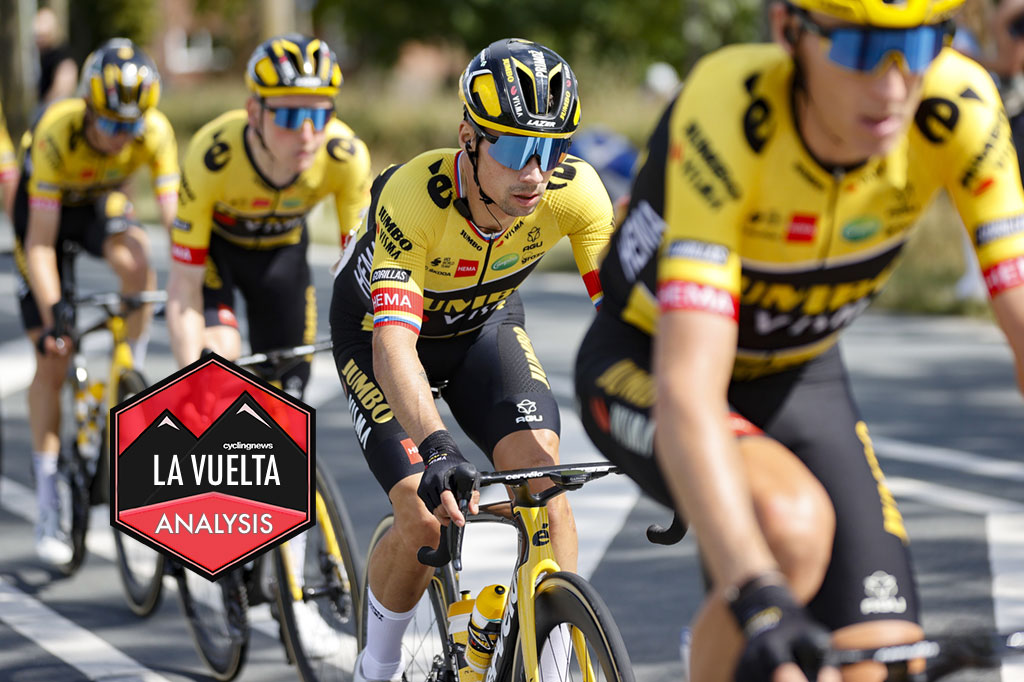It’s been a little over a month since Primož Roglič left the Tour de France on stage 16. He’d been slowly getting worse after his fall on the Wallers-Arenberg stage 11 days earlier and despite brief glimpses of recovery, he never looked like challenging his teammate Jonas Vingegaard or Tadej Pogačar for the overall victory.
Now he’s at the Vuelta a España as defending champion and everything seems rosy again, but the intervening time will have been as much about re-assessing where his career goes from here as about recuperation and allowing his injuries to heal.
With the historic prospect of a fourth consecutive win looking likely, on paper at least, it would be easy to imagine that the 32-year-old would be perfectly content, but with rumours of possible transfers to another team lurking in the background, you begin to see through the smiles and wonder how much he’s been affected by another setback at the Tour.
It would be perfectly normal even for the biggest of egos to ask themselves the question, ‘will I ever win it?’ even if Roglič doesn’t come across as that type of person at all, despite his ambition, drive and need for success. There’s the very real prospect that he won’t be on an equal footing with Vingegaard come next July, and so he finds himself in the delicate situation of having to evaluate the coming years.
Does he stay with the world’s number one team Jumbo-Visma and be the backup to a younger, slightly stronger rider at the biggest race of the year? Or does he go elsewhere and enjoy the luxury of being a sole leader again? It’s a difficult moment for him.
Whereas before, being 32 was still considered amid the peak years of performance, the change in focus towards young talent – and a shift in race tactics that gives those same riders much more freedom – will undoubtedly influence decisions of squad recruitment, even if Jumbo’s budget allows the luxury of a proven Grand Tour winner.
We haven’t heard much about Roglič’s preparations for this race, which, given his retirement from the Tour, is understandable. The damage would have been as much physical as mental, but then we already know of his fierce competitiveness, so for the latter I don’t expect any great changes. The physical consequences don’t seem to be there, either, because when he comes to a race, it’s not to train or prepare for something else.
He’s there to race, and the opening three days in the Netherlands has shown that he is in good shape. The question of…
Click Here to Read the Full Original Article at CyclingNews RSS Feed…

